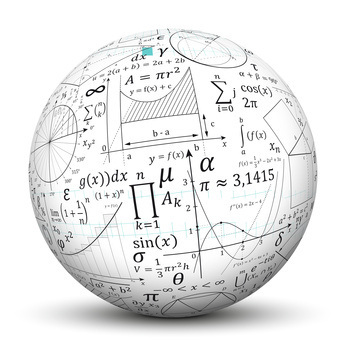Noah Smith’s new MMT critique — more nonsense on stilts In recent years … macroeconomists have redoubled their efforts to match theory to data … This kind of research is not dramatic, headline-grabbing stuff. It doesn’t give instant answers to the big questions of macroeconomics … What it is, is science … Empirical macro represents a real, honest, ongoing attempt by dedicated researchers to explore the ins and outs of a hideously complex and hard-to-measure system … But elected politicians looking for a bold policy program and asset managers looking for a bold investment thesis are frequently tempted by heterodox economic theories claiming to have simple, sweeping solutions. Two examples are Austrian economics and modern monetary theory. These movements
Topics:
Lars Pålsson Syll considers the following as important: Economics
This could be interesting, too:
Lars Pålsson Syll writes Schuldenbremse bye bye
Lars Pålsson Syll writes What’s wrong with economics — a primer
Lars Pålsson Syll writes Krigskeynesianismens återkomst
Lars Pålsson Syll writes Finding Eigenvalues and Eigenvectors (student stuff)
Noah Smith’s new MMT critique — more nonsense on stilts
In recent years … macroeconomists have redoubled their efforts to match theory to data … This kind of research is not dramatic, headline-grabbing stuff. It doesn’t give instant answers to the big questions of macroeconomics … What it is, is science … Empirical macro represents a real, honest, ongoing attempt by dedicated researchers to explore the ins and outs of a hideously complex and hard-to-measure system …
But elected politicians looking for a bold policy program and asset managers looking for a bold investment thesis are frequently tempted by heterodox economic theories claiming to have simple, sweeping solutions. Two examples are Austrian economics and modern monetary theory.
These movements call themselves theories, but they don’t look much like the mathematical models used by macroeconomists … But the lack of formal models and empirical tests doesn’t stop unorthodox advocates from issuing audacious policy advice.
“These movements call themselves theories, but they don’t look much like the mathematical models used by macroeconomists.” No, they certainly don’t. And forgood d reasons!
Noah Smith — like so many other mainstream economists — obviously has the unfounded and ridiculous idea that because heterodox people like yours and MMTers often criticize the application of mathematics in mainstream economics, we are critical of math per se.
I don’t know how many times I’ve been asked to answer this straw-man objection to heterodox economics– but here we go again:
No, there is nothing wrong with mathematics per se.
No, there is nothing wrong with applying mathematics to economics.
 Mathematics is one valuable tool among other valuable tools for understanding and explaining things in economics.
Mathematics is one valuable tool among other valuable tools for understanding and explaining things in economics.
What is, however, totally wrong, are the utterly simplistic beliefs that
• “math is the only valid tool”
• “math is always and everywhere self-evidently applicable”
• “math is all that really counts”
• “if it’s not in math, it’s not really economics”
• “almost everything can be adequately understood and analyzed with math”
So — please — let’s have no more of this feeble-minded pseudo-debate where heterodox economics is described as simply anti-math!
No real problem worth solving can be solved without some basic research. Therefore the engagement of faculty and students on real problems yields basic research problems whose solutions are of practical significance. Furthermore, the validity of these solutions can be tested in the most effective way known: in application. This avoids one’s confusing mathematical masturbation with intercourse between research and reality.
Noah Smith maintains that ‘new imaginative empirical methods’ — such as natural experiments, field experiments, lab experiments, RCTs — help us to answer questions concerning the validity of macroeconomic models.
Yours truly beg to differ. When looked at carefully, there are in fact few real reasons to share the optimism on this so-called ’empirical revolution’ in economics.
Limiting model assumptions in economic science always have to be closely examined since if we are going to be able to show that the mechanisms or causes that we isolate and handle in our models are stable in the sense that they do not change when we ‘export’ them to our ‘target systems,’ we have to be able to show that they do not only hold under ceteris paribus conditions and a fortiori only are of limited value to our understanding, explanations or predictions of real economic systems.
Real-world social systems are not governed by stable causal mechanisms or capacities. The kinds of ‘laws’ and relations that mainstream economics has ‘established,’ are laws and relations about entities in models that presuppose causal mechanisms being atomistic and additive. When causal mechanisms operate in real-world social target systems they only do it in ever-changing and unstable combinations where the whole is more than a mechanical sum of parts. If economic regularities obtain they do it (as a rule) only because we engineered them for that purpose. Outside man-made ‘nomological machines’ they are rare, or even non-existent .
So, no, I find it hard to share the enthusiasm and optimism on the value of (quasi)natural experiments and all the statistical-econometric machinery that comes with it. I would, contrary to Noah, argue that although different ’empirical’ approaches have been — more or less — integrated into mainstream economics, there is still a long way to go before economics has become a truly empirical science.
Since the standard macroeconomic mathematical models today build on assumptions of representative actors, rational expectations, market clearing and equilibrium, and we know that real people and markets cannot be expected to obey these assumptions, the warrants for supposing that conclusions or hypothesis of causally relevant mechanisms or regularities can be bridged, are obviously non-justifiable. Incompatibility between actual behaviour and the behaviour in mainstream macroeconomic models is not a symptom of ‘irrationality.’ It rather shows the futility of trying to represent real-world target systems with models — mathematical or not — flagrantly at odds with reality.
